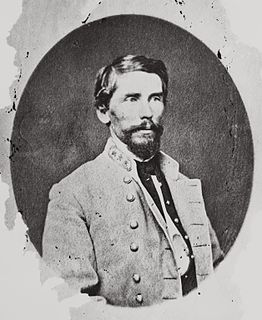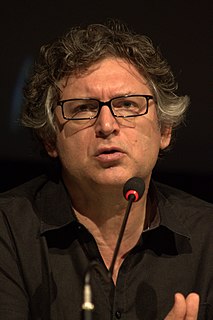Top 271 Validity Quotes & Sayings - Page 5
Explore popular Validity quotes.
Last updated on December 22, 2024.
I now want to tell three stories about advances in twentieth-century physics. A curious fact emerges in these tales: time and again physicists have been guided by their sense of beauty not only in developing new theories but even in judging the validity of physical theories once they are developed. Simplicity is part of what I mean by beauty, but it is a simplicity of ideas, not simplicity of a mechanical sort that can be measured by counting equations or symbols.
Our entire case as members of The Church of Jesus Christ of Latter-day Saints rests on the validity of this glorious First Vision. ... Nothing on which we base our doctrine, nothing we teach, nothing we live by is of greater importance than this initial declaration. I submit that if Joseph Smith talked with God the Father and His Beloved Son, then all else of which he spoke is true. This is the hinge on which turns the gate that leads to the path of salvation and eternal life.
No government has the right to decide on the truth of scientific principles, nor to prescribe in any way the character of the questions investigated. Neither may a government determine the aesthetic value of artistic creations, nor limit the forms of literacy or artistic expression. Nor should it pronounce on the validity of economic, historic, religious, or philosophical doctrines. Instead it has a duty to its citizens to maintain the freedom, to let those citizens contribute to the further adventure and the development of the human race.
What is the fundamental hypothesis of science, the fundamental philosophy? We stated it in the first chapter: the sole test of the validity of any idea is experiment. ... If we are told that the same experiment will always produce the same result, that is all very well, but if when we try it, it does not, then it does not. We just have to take what we see, and then formulate all the rest of our ideas in terms of our actual experience.
The whole point about vision is that it's very individual, it's very personal, and it has to be confessional. It has to be something which hurts - the pulling out of it and putting it on the page hurts. Art can be about the individual writer's response to his or her condition, and if that response comes out of a predigested belief about what the audience wants to hear about the writer's condition, then it has no truth, it has no validity. You either write with your own blood or nobody's. Otherwise it's just ink.
Awareness is the key. Do we see the stories that we're telling ourselves and question their validity? When we are distracted by strong emotion, do we remember that it is our path? Can we feel the emotion and breathe it into our hearts for ourselves and everyone else? If we can remember to experiment like this even occasionally, we are training as a warrior. And when we can't practice when distracted but KNOW we can't, we are still training well. Never underestimate the power of compassionately recognizing what's going on.
Laws which authorize and promote abortion and euthanasia are therefore radically opposed not only to the good of the individual but also to the common good; as such they are completely lacking in authentic juridical validity. Disregard for the right to life, precisely because it leads to the killing of the person whom society exists to serve, is what most directly conflicts with the possibility of achieving the common good. Consequently, a civil law authorizing abortion or euthanasia ceases by that very fact to be a true, morally binding civil law.
They have never affirm'd any thing, concerning the cause, till the trial was past: whereas, to do it before, is a most venomous thing in the making of Sciences: for whoever has fix'd on his Cause, before he has experimented; can hardly avoid fitting his Experiment, and his Observations, to his Own Cause, which he had before imagin'd; rather than the Cause to the Truth of the Experiment itself. Referring to experiments of the Aristotelian mode, whereby a preconceived truth would be illustrated merely to convince people of the validity of the original thought.
So just look into your acts, into your thoughts, into your feelings: you will find the armor everywhere. Wherever you see fear, you have created it. It was needed at one time - now it is no longer needed. A simple understanding that it is no longer needed... now it is a barrier, a hindrance, a burden. If you find something truthful, it will have its own validity. But in the armor you will not find anything that has any connection with truth. The whole armor is made of fear - layers and layers of fear.
No man can delegate,... any right of arbitrary dominion over a 3rd person; for that would imply a right in the 1st person, not only to make the 3rd person his slave, but also a right to dispose of him as a slave to still other persons. Any contract to do this is necessarily a criminal one...To call such a contract a “constitution” does not at all lessen its criminality, or add to its validity.
There is a mental fear, which provokes others of us to see the images of witches in a neighbor's yard and stampedes us to burn down this house. And there is a creeping fear of doubt, doubt of what we have been taught, of the validity of so many things we had long since taken for granted to be durable and unchanging. It has become more difficult than ever to distinguish black from white, good from evil, right from wrong.
I will never say, 'support the troops.' I don't believe in the validity of that statement. People say, 'I don't support the war, I support the troops' as though you can actually separate the two. You cannot; the troops are a part of the war, they have become the war and there is no valid dissection of the two. Other people shout with glaring eyes that we should give up our politics, give up our political affiliations in favor of 'just supporting the troops.' I wish everything were that easy.
If the finding of Coines, Medals, Urnes, and other Monuments of famous Persons, or Towns, or Utensils, be admitted for unquestionable Proofs, that such Persons or things have, in former Times, had a being, certainly those Petrifactions may be allowed to be of equal Validity and Evidence, that there have been formerly such Vegetables or Animals. These are truly Authentick Antiquity not to be counterfeited, the Stamps, and Impressions, and Characters of Nature that are beyond the Reach and Power of Humane Wit and Invention, and are true universal Characters legible to all rational Men.
It has often been argued that absolute scepticism is self-contradictory; but this is a mistake: and even if it were not so, it would be no argument against the absolute sceptic, inasmuch as he does not admit that no contradictory propositions are true. Indeed, it would be impossible to move such a man, for his scepticism consists in considering every argument and never deciding upon its validity; he would, therefore, act in this way in reference to the arguments brought against him.
Though we [Humanists] take a strict position on what constitutes knowledge, we are not critical of the source of ideas. Often intuitive feelings, hunches, speculation, and flashes of inspiration prove to be excellent sources of novel approaches, new ways of looking at things, new discoveries, and new information. We do not disparage those ideas derived from religious experience, altered states of consciousness, or the emotions; we merely declare that testing these ideas against reality is the only way to determine their validity as knowledge.
I am with the South in life or death, in victory or defeat. I believe the North is about to wage a brutal and unholy war on a people who have done them no wrong, in violation of the Constitution and the fundamental principles of government. They no longer acknowledge that all government derives its validity from the consent of the governed. They are about to invade our peaceful homes, destroy our property, and murder our men and dishonor our women. We propose no invasion of the North, no attack on them, and only ask to be left alone.
…It’s hard to appreciate the beauty of a world when one doubts its very validity….But I’ve long since lost all such doubts, Ono,’ he continued. ‘When I am an old man, when I look back over my life and see I have devoted it to the task of capturing the unique beauty of that world, I believe I will be well satisfied. And no man will make me believe I’ve wasted my time.
I was very young when I prepared those prints. I suspect the reason I couldn't celebrate the floating world was that I couldn't bring myself to believe in its worth. Young men are often guilt-ridden about pleasure, and I suppose I was no different. I suppose I thought that to pass away one's time in such places, to spend one's skills celebrating things so intangible and transient, I suppose I thought it all rather wasteful, all rather decadent. It's hard to appreciate the beauty of a world when one doubts its very validity
Life is not to be taken seriously, as we are really temporary here. We are like a pre-paid card with limited validity. If we are lucky, we may last another 50 years. And 50 years is just 2,500 weekends. Do we really need to get so worked up? It’s ok, bunk a few classes, goof up a few interviews, fall in love. We are people, not programmed devices.
The 'nations,' as they are called, with whom our pretended ambassadors, secretaries, presidents, and senators profess to make treaties, are as much myths as our own. On general principles of law and reason, there are no such 'nations.' ... Our pretended treaties, then, being made with no legitimate or bona fide nations, or representatives of nations, and being made, on our part, by persons who have no legitimate authority to act for us, have intrinsically no more validity than a pretended treaty made by the Man in the Moon with the king of the Pleiades.
The individual cannot think and communicate his thought, the governor and legislator cannot act effectively or frame his laws without words, and the solidity and validity of these words is in the care of the damned and despised litterati...when their very medium, the very essence of their work, the application of word to thing goes rotten, i.e. becomes slushy and inexact, or excessive or bloated, the whole machinery of social and of individual thought and order goes to pot.
The interpretation of the laws is the proper and peculiar province of the courts. A constitution is, in fact, and must be regarded by the judges, as fundamental law. It therefore belongs to them to ascertain its meaning, as well as the meaning of any particular act proceeding from the legislative body. If there should happen to be an irreconcilable variance between the two, that which has the superior obligation and validity ought, of course, to be preferred; or, in other words, the Constitution ought to be preferred to the statute, the intention of the people to the intention of their agents.
A philosopher is a lover of wisdom, not of knowledge, which for all its great uses ultimately suffers from the crippling effect of ephemerality. All knowledge is transient, linked to the world around it and subject to change as the world changes, whereas wisdom, true wisdom is eternal, immutable. To be philosophical one must love wisdom for its own sake, accept its permanent validity and yet its perpetual irrelevance. It is the fate of the wise to understand the process of history and yet never to shape it.
A scientist's life, the author says, is indeed conflictual, formed by battles, defeats, and victories: but the adversary is always and only the unknown, the problem to be solved, the mystery to be clarified. It is never a matter of civil war; even though of different opinions, or of different political leanings, scientists dispute each other, they compete, but they do not battle: they are bound together by a strong alliance, by the common faith "in the validity of Maxwell's or Boltzmann's equations," and by the common acceptance of Darwinism and the molecular structure of DNA.
The exaggerated dopamine sensitivity of the introvert leads one to believe that when in public, introverts, regardless of its validity, often feel to be the center of (unwanted) attention hence rarely craving attention. Extroverts, on the other hand, seem to never get enough attention. So on the flip side it seems as though the introvert is in a sense very external and the extrovert is in a sense very internal - the introvert constantly feels too much 'outerness' while the extrovert doesn't feel enough 'outerness'.
It can be frustrating and even frightening to observe the success which sometimes comes to outlaws and rogues who seem to refute notions of universal justice. Every time we see a villain enjoying the fruits of dishonorable acts we find ourselves doubting the value of character and the validity of the virtues we have been taught. Thus, it takes character to believe in character, but that belief is always rewarded, often by material success, but always by the esteem it earns from those who matter.
Safety lies in catering to the in-group. We are not all brave. All I would ask of writers who find it hard to question the universal validity of their personal opinions and affiliations is that they consider this: Every group we belong to - by gender, sex, race, religion, age - is an in-group, surrounded by an immense out-group, living next door and all over the world, who will be alive as far into the future as humanity has a future. That out-group is called other people. It is for them that we write.
It is understandable how some people could give way to this kind of pervasive pessimism, but we speak of a gospel which brings good tidings of great joy and this must be reflected in our lives, if we are to be believable especially as we suggest to others that there is, in fact, not only a better way, but also the way. Scriptures that speak of man as a being who "might have joy" have more impact when falling from the lips or pens of men and women whose lives give fresh evidence of the validity of that scripture.
How strange that excision – female circumcision, with several languages using the same term for both kinds of mutilation – of little girls should revolt the westerner but excite no disapproval when it is performed on little boys. Consensus on the point seems absolute. But ask your interlocutor to think about the validity of this surgical procedure, which consists of removing a healthy part of a nonconsenting child’s body on nonmedical grounds – the legal definition of… mutilation.
It's the hardening of these narratives that makes peace so difficult. If each side can see the narrative, the claims that the other has, then there is a much more likely possibility of making a resolution. But what I see is the opposite. There is a total disclaiming of the validity of the other side, and talk that I find really unsettling, the kind of chatter you get from ultra-right Israelis and Hamas is of annihilation. In that kind of dialogue, there's no way to move toward peace.



























